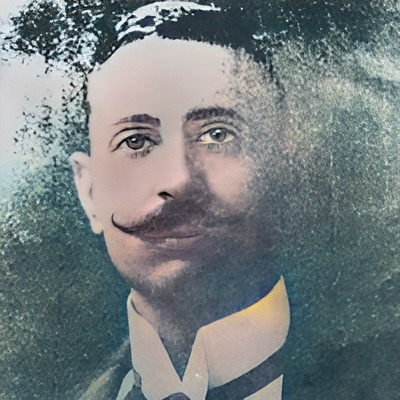Mian Fazl-i-Husain was born on July 14, 1877 in an old, respectable Rajput family. His father Khan Bahadur Hussain Bakhsh started his career with a petty job but gradually got the rank of District judge. Mian Fazl-i-Husain got his early education from Government College Lahore where Allama Iqbal was his class fellow and remained his old friend throughout his life. After he failed to qualify for the ICS, he went to England and took a degree of Bar-at-Law. In 1901 he started practice as a lawyer at Sialkot but in 1905 shifted to Lahore.
At Lahore Mian Fazl-i-Husain became highly interested in the affairs of Anjuman-i-Himayat-i-Islam. In 1905 he was elected a member of Managing Committee and the following year Secretary of the College Committee. He lifelong contribution towards the Muslims’ only institution for higher education, Islamia College, Lahore cannot be overlooked. In 1917 he became the General Secretary of the new Punjab Muslim League organized by the progressive group and retained that office till 1920. Earlier he had been a member of the Congress since 1905 but when it adopted the policy of Non-Cooperation and the boycott of Councils, he immediately resigned. In 1916 he was also elected to the Punjab Legislative Council. He vigorously worked for an equality of treatment for the Punjab that lagged behind under Minto-Morley Reforms to have only 19 % elected members as against 53 % in Bengal and 48 % in Bombay. He strongly opposed rural-urban division, created by Sir Michael O’ dyer, the Lieutenant Governor of the Punjab. In 1921 he was given the portfolio of education minister of Punjab. At this position he worked vigorously and made his ministry surpass all others in the subcontinent in terms of out output and performance. He increased literacy rate from 2.42 % to 6.71 % and enhanced the reserve seats for the Muslims in Government College Lahore and King Edwards Medical College Lahore. He allocated Muslims’ quotas for the first time in Provincial Civil Services. He started an all-out campaign for replacement o Separate Electorates by joint electorates. These measures gave a great boost to the Muslims for it became easier for them to compete with Hindu fellow-students and show their intellectual and mental capabilities at the time when the Muslim League was absorbed in Khilafat Movement and other affairs having no concern with the Indo-Pak subcontinent. In this atmosphere he revived the Punjab Provincial League. He invited the All-India Muslim League to hold its session at Lahore on 25-26 May 1924. Being presided by Muhammad Ali Jinnah this session passed a comprehensive resolution that marked a far-reaching change in the political goal of the Indian Muslims. Stress was made that “no majority shall be reduced to a minority or even an equality”. This was to ensure that Muslim majorities should remain unaffected in Muslim majority areas. There was also a demand of placing N.W.F.P. in all respects in a position of equality with the other major provinces of India. All the demands were later on elaborated and amalgamated into Jinnah’s fourteen points.
He was an advocate of the idea of the communal harmony in India and to give practical shape to his theory, he founded the Punjab National Unionist Party commonly known as Unionist party in 1926. This was a combination of all Indian communities in including Sikhs, Hindus and Muslims, as membership was open for all the communities. Although the party, as critics pointed out, turned out to be the party of landlords in Punjab aiming to defend their interest, with a clear majority of Muslims, Fazl-i-Husain aimed at dominating the Legislative Council. In 1930 he was certainly one of the ablest brains of India to be elected as Viceroy Executive Councilor. He played an important role in all-India affairs especially those, which went in favor of the Muslims. At least 25 % of all government vacancies were reserved for Muslims.
According to Coatman, Director of Information, Government of India, Sir Fazl-i-Hussain was ‘a man of inflexible will and immutable purpose, with a mind like diamond which can cut its way through anything.’ He was, no doubt, the first man who not only bravely faced the vicious propaganda of Hindu press and legislators but also had a showdown with English bureaucracy and won a good deal of laurels. Iqbal described him as a true patriot of the Punjab. Even the Quaid had great respect for him and in one of his letters he wrote to him: “We want a man of your caliber and experience.” His political activism was, indeed, selfless and free from individual favoritism in giving the Muslims a new sense of confidence and pride that in the long run paved the way for an independent sovereign state for the Muslims of the subcontinent.
Mian Fazl-i-Husain was undoubtedly the most talented Muslim, who ever served on the Viceroy’s Executive Council but due to his deteriorating health, he died on July 09, 1936.
This article was last updated on Monday, Jan 01, 2007






